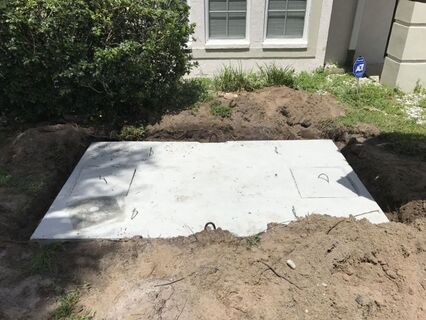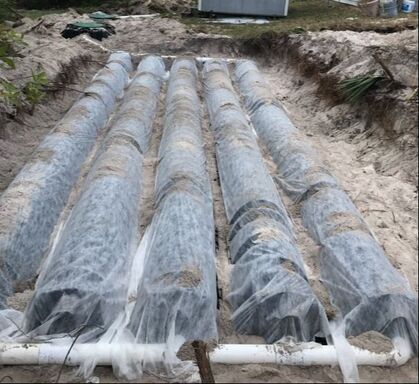|
When it comes to managing wastewater, two primary options exist: septic systems and sewer lines. As a homeowner or property owner, understanding the differences between these two systems is crucial. Each has its own set of advantages and disadvantages, and selecting the right option can have a significant impact on your property's value, functionality, and environmental impact. In this comprehensive guide, we'll decode the complexities of septic systems and sewer lines, helping you make informed decisions for your property.
As a responsible property owner, you must be well-informed about the wastewater management options available for your home or business. Septic systems and sewer lines are the two primary choices, each with its own unique features and requirements. Deciphering which one is best for your needs involves considering factors like cost, environmental impact, maintenance, and more. We're here to guide you through the labyrinth of septic systems vs. sewer lines.
Septic Systems: The Basics
What is a Septic System? A septic system is an individual, on-site wastewater treatment system designed for properties not connected to municipal sewer lines. These systems are commonly used in rural and suburban areas where centralized sewer systems are unavailable or impractical. How Septic Systems Work Understanding how a septic system functions is pivotal. Here's a breakdown of the process:
Components of a Septic System A typical septic system consists of the following components:
Sewer Lines: The Essentials Understanding Sewer Lines Sewer lines, also known as sewer systems, are a network of underground pipes that transport wastewater from homes, businesses, and industrial facilities to centralized treatment plants. These treatment plants clean the wastewater before releasing it back into the environment. Public vs. Private Sewer Systems Public Sewer Systems:
Private Sewer Systems:
Comparing Septic Systems and Sewer Lines Now that we've unraveled the basics of septic systems and sewer lines, let's delve into a comprehensive comparison of these two wastewater management options. Cost Considerations Septic Systems: Installation costs are typically lower than connecting to a sewer line. Ongoing maintenance is essential but generally less expensive. Sewer Lines: Initial connection fees and ongoing service charges can be higher. Costs are shared among users in public sewer systems. Environmental Impact Septic Systems: Can be environmentally friendly when properly maintained. Nutrient-rich effluent can nourish the soil and vegetation. Sewer Lines: Centralized treatment plants are more effective in treating wastewater. Reduced risk of groundwater contamination in public sewer systems. Maintenance and Repairs Septic Systems: Regular pumping and inspections required, typically every 3-5 years. Repairs can be costly if issues arise. Sewer Lines: Maintenance is generally handled by the utility company in public systems. Repairs and maintenance costs may be shared among users.
Health and Safety Concerns
Septic Systems:
Property Value and Resale Considerations Septic Systems:
Sewer Lines:
Long-Term Sustainability Septic Systems:
Sewer Lines:
Explore Our Comprehensive Wastewater Management Services
When it comes to managing your property's wastewater, we've got you covered. From septic system installation to sewer line connections, our full range of services ensures your needs are met cost-effectively and environmentally responsibly. Explore our comprehensive solutions and discover the best fit for your property's future. Call The Septic Tank Man Today
Which System is Right for You?
Choosing between a septic system and a sewer line depends on various factors, including:
Making the Informed Choice The decision to invest in a septic system or connect to a sewer line is a critical one. To make an informed choice, follow these steps:
Factors Influencing the Decision In the grand scheme of things, several factors will influence your decision between septic systems and sewer lines. These include:
Frequently Asked Questions How often should I pump my septic tank? The recommended frequency for pumping a septic tank is typically every 3-5 years, but this can vary based on factors like tank size, usage, and local regulations. Regular inspections will help determine the optimal pumping schedule. Are septic systems more environmentally friendly than sewer lines? Septic systems can be more environmentally friendly when properly maintained, as they treat wastewater on-site and return treated effluent to the ground. However, public sewer systems often have advanced treatment facilities that can efficiently remove contaminants. Can I connect to a public sewer system if I currently have a septic system? In some cases, it may be possible to connect to a public sewer system if it's available in your area. This decision depends on local regulations and the feasibility of connecting to the existing sewer infrastructure. What are the main advantages of public sewer systems? The main advantages of public sewer systems include convenience, robust treatment facilities, shared maintenance costs, and suitability for densely populated areas. Is it possible to make a septic system more environmentally friendly? Yes, by implementing responsible water usage, using biodegradable soaps, and practicing proper maintenance, you can enhance the environmental friendliness of a septic system. How can I assess the condition of my septic system? Regular inspections by a licensed professional are the best way to assess the condition of your septic system. They can identify any issues and recommend necessary maintenance or repairs.
Final Thoughts
As you navigate the intricacies of choosing between septic systems and sewer lines, remember that both options have their merits. The decision should align with your property's unique characteristics, your values, and your long-term goals. Making an informed choice is not just about meeting the immediate needs of your property; it's about securing a sustainable and efficient future. Responsible wastewater management is a critical aspect of property ownership, impacting its functionality, environmental footprint, and value. For personalized guidance on selecting the best wastewater management system for your property, reach out to us. Our team of experts is here to provide tailored advice and professional services that ensure your property's wastewater needs are met efficiently, cost-effectively, and environmentally responsibly. Don't hesitate to contact us today to make the right choice for your property's future. As you embark on this important decision, remember that responsible wastewater management is not just about today; it's about securing a sustainable and efficient future for your property. Choose wisely, and let your property thrive. In this extended exploration of septic systems vs. sewer lines, we'll delve even deeper into the complexities of these wastewater management options.
0 Comments
Leave a Reply. |
Septic Tank Man is a reputable septic service company dedicated to providing reliable, efficient, and cost-effective solutions for your septic needs. With years of experience under our belt, we've earned a reputation as the leading experts in North Port and its surrounding areas. Archives
October 2023
Categories |



 RSS Feed
RSS Feed

